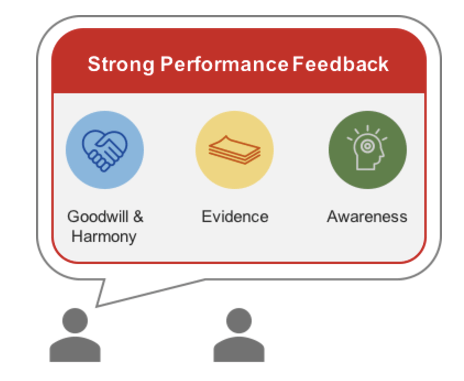Don't dilute that strong feedback instead deliver it effectively

Performance Conversations often involve delivery of strong feedback. However, many Managers end up watering down what they originally had in mind.
This isn’t surprising as feedback when handled badly can destroy trust, eliminate goodwill and create long term inter-personal problems.
But shying away from delivering strong feedback often comes at a cost. This is because the real purpose of giving such feedback – which is to orchestrate change that improves future performance – is lost.
In reality, it doesn’t have to be a choice between spoiling the relationship or compromising future performance. The following guidelines will help deliver strong feedback and orchestrate change without breaking down trust or introducing long-term negativity.
Shying from giving strong feedback comes at a cost: it sets the stage for a repeat error which will cause greater agony. Therefore it must be given. However, while giving it ensure that it has 3 fold purity: it is based on objective observations, the evidence is shared, and given with a base of goodwill rather than ill-will.

1.Genuine goodwill & empathy:
One easily accepts difficult feedback from a friend, but suspects even good feedback from an enemy. Even strong feedback, if given with a base of genuine goodwill and empathy, does not generate conflict, but in fact brings clarity and creates a positive motivation for change.
2. Evidence:
Feedback when accompanied with evidence – the actual incidents on which the conclusions are based – gains far more acceptability. If not complete acceptance, it facilitates a dialogue around reality rather than perceptions.
3.Awareness & Listening:
Despite maintaining goodwill & using evidence, a point may be mis-understood or rejected. With awareness, this can be noticed quickly. By giving space for dialogue and listening carefully, the area of difference can be isolated and addressed.
Once the strong feedback has been delivered without causing negativity, the journey to better performance can truly begin. So, don’t dilute that strong feedback. Instead, deliver it effectively.
Special thanks to Mr Abhijit Bhabhe for reviewing the drafts of this article.
